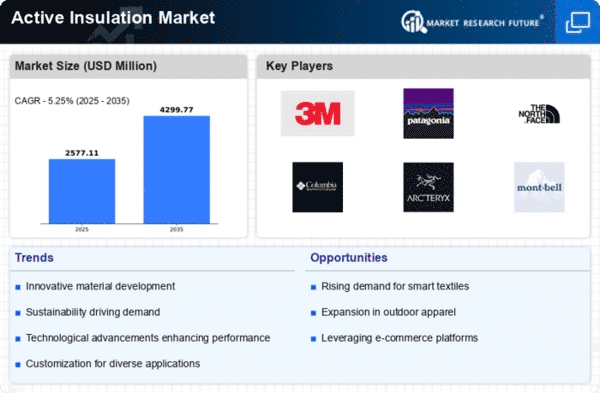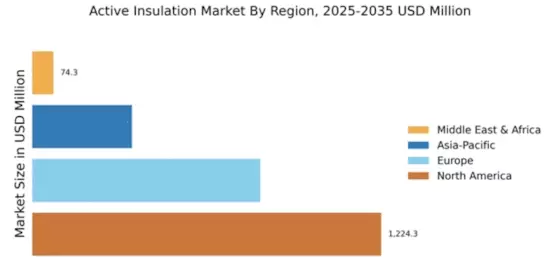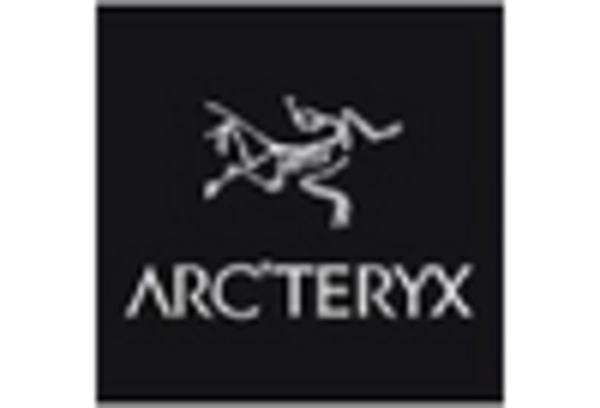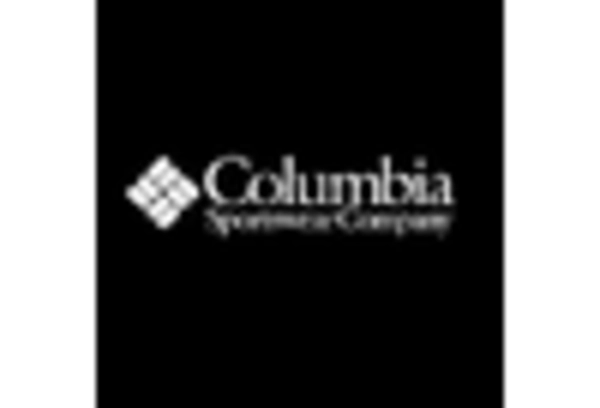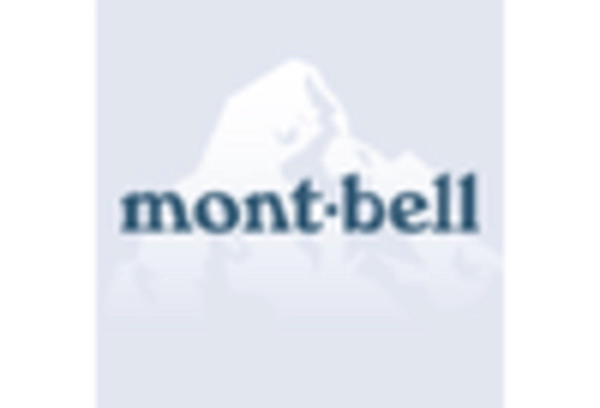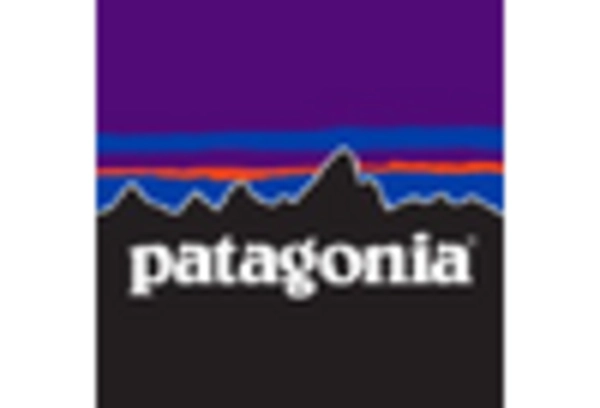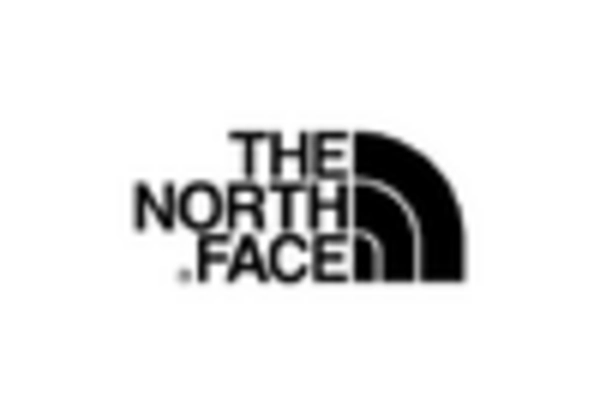Market Growth Projections
The Global Active Insulation Market Industry is projected to witness substantial growth in the coming years. With an estimated market value of 2.45 USD Billion in 2024, the industry is expected to expand significantly, reaching approximately 4.3 USD Billion by 2035. This growth is indicative of the increasing adoption of active insulation technologies across various sectors, driven by factors such as energy efficiency demands and technological advancements. The compound annual growth rate of 5.26% from 2025 to 2035 further highlights the market's potential. Such projections reflect a robust interest in sustainable insulation solutions that adapt to environmental conditions.
Rising Awareness of Climate Change
The Global Active Insulation Market Industry is increasingly influenced by the rising awareness of climate change and its implications. As individuals and organizations become more conscious of their environmental impact, there is a growing demand for products that contribute to sustainability. Active insulation solutions, which can adapt to varying temperatures and conditions, are seen as a viable option for reducing energy consumption and greenhouse gas emissions. This shift in consumer behavior is expected to drive market growth, with a projected compound annual growth rate of 5.26% from 2025 to 2035. The alignment of active insulation technologies with climate goals positions them favorably in the evolving market landscape.
Expansion of the Construction Sector
The expansion of the construction sector globally is a significant driver for the Global Active Insulation Market Industry. As urbanization accelerates and infrastructure projects proliferate, the demand for advanced insulation solutions is on the rise. Active insulation technologies, which provide enhanced thermal regulation and energy savings, are increasingly being integrated into new building designs. This trend is particularly evident in regions experiencing rapid urban growth, where energy-efficient buildings are prioritized. The market's growth trajectory is supported by the increasing investments in sustainable construction practices, further solidifying the role of active insulation in modern architecture.
Growing Demand for Energy Efficiency
The Global Active Insulation Market Industry is experiencing a notable surge in demand driven by the increasing emphasis on energy efficiency across various sectors. As governments worldwide implement stringent regulations aimed at reducing carbon footprints, industries are compelled to adopt innovative insulation solutions. Active insulation technologies, which dynamically adjust to environmental changes, are becoming essential in achieving energy efficiency goals. For instance, the market is projected to reach 2.45 USD Billion in 2024, reflecting a growing recognition of the need for sustainable building practices. This trend is likely to continue, as energy-efficient solutions are prioritized in construction and manufacturing.
Technological Advancements in Insulation Materials
Technological innovations play a pivotal role in shaping the Global Active Insulation Market Industry. Recent advancements in materials science have led to the development of sophisticated active insulation products that offer superior thermal performance and adaptability. These innovations not only enhance the effectiveness of insulation but also contribute to the overall sustainability of buildings. For example, the integration of phase change materials and smart textiles in insulation solutions is gaining traction. As a result, the market is expected to grow significantly, with projections indicating a value of 4.3 USD Billion by 2035. This growth underscores the importance of continuous research and development in the insulation sector.
Regulatory Support for Sustainable Building Practices
Regulatory frameworks promoting sustainable building practices are a key driver of the Global Active Insulation Market Industry. Governments worldwide are implementing policies that incentivize the use of energy-efficient materials and technologies in construction. These regulations not only aim to reduce energy consumption but also encourage the adoption of innovative insulation solutions. Active insulation products, which offer dynamic performance, align well with these regulatory goals. As a result, the market is poised for growth, with expectations of reaching 4.3 USD Billion by 2035. This regulatory support underscores the importance of active insulation in achieving broader sustainability objectives.


